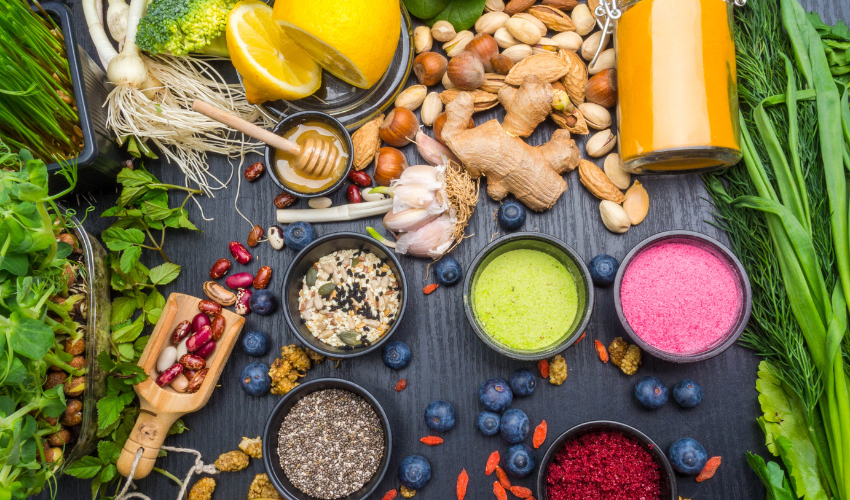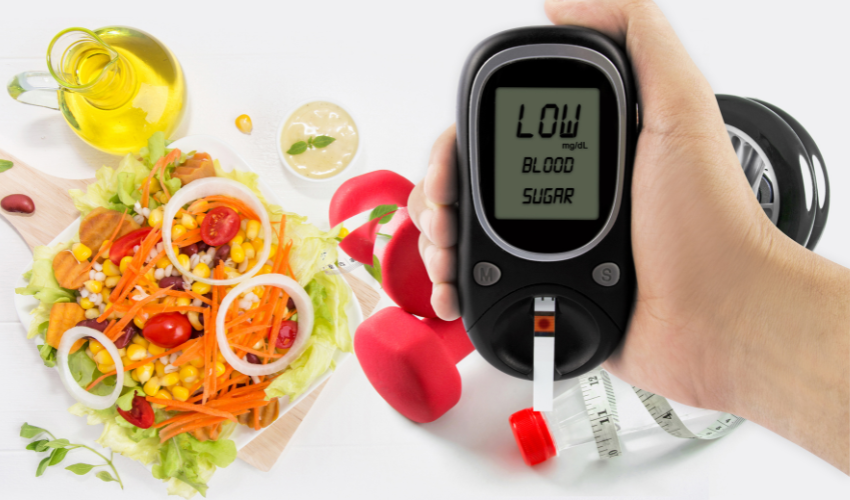Maintaining healthy blood sugar levels is essential for a healthy body. Blood sugar levels refer to the amount of glucose present in the bloodstream, and the body relies on glucose for energy. When blood sugar levels are unstable, it can lead to various health complications, such as diabetes, heart disease, and obesity. Luckily, there are many foods that can help to stabilize blood sugar levels and prevent these health problems. In this article, we will discuss the best foods that can help you to maintain stable blood sugar levels.
Why Stabilizing Blood Sugar is Important?
- The Negative Effects of Blood Sugar Imbalances
- The Benefits of Stabilizing Blood Sugar Levels
What Foods Stabilize Blood Sugar?
- High-Fiber Foods
- Lean Protein Sources
- Healthy Fats
- Low-Glycemic Index Foods

How to Incorporate Blood Sugar-Stabilizing Foods into Your Diet?
- Start with a Balanced Breakfast
- Make Sure to Include Plenty of Fiber
- Avoid Processed Foods and Sugary Drinks
- Focus on Whole, Nutrient-Dense Foods
- Don’t Forget About Healthy Fats
- Pay Attention to Portion Sizes
Foods That Help to Stabilize Blood Sugar Levels
- Whole Grains
a. Brown Rice
b. Quinoa
c. Barley
d. Oats - Nuts and Seeds
a. Almonds
b. Chia Seeds
c. Flaxseeds
d. Pumpkin Seeds - Leafy Greens
a. Spinach
b. Kale
c. Collard Greens
d. Swiss Chard - Cinnamon
- Berries
a. Blueberries
b. Raspberries
c. Strawberries
d. Blackberries - Avocado
- Legumes
a. Chickpeas
b. Lentils
c. Kidney Beans
d. Black Beans - Garlic
- Turmeric
- Apple Cider Vinegar
- Lean Protein Sources
a. Chicken Breast
b. Turkey Breast
c. Fish
d. Tofu
e. Lentils - Oils
a. Olive Oil
b. Coconut Oil
FAQs:
- Can eating too much sugar cause high blood sugar levels?
Yes, consuming too much sugar can cause your blood sugar levels to spike, which can be harmful to your health. - Can exercise help stabilize blood sugar levels?
Yes, exercise can help regulate blood sugar levels by increasing insulin sensitivity and promoting glucose uptake by the muscles. - Can drinking alcohol affect blood sugar levels?
Yes, alcohol can cause your blood sugar levels to fluctuate and can even lead to hypoglycemia (low blood sugar). - Are there any foods I should avoid if I have diabetes?
Yes, people with diabetes should avoid sugary drinks, processed foods, and foods high in refined carbohydrates. - Is it necessary to count calories when trying to stabilize blood sugar levels?
While counting calories can be helpful, it’s not necessary to stabilize blood sugar levels. Instead, focus on eating nutrient-dense, whole foods that are high in fiber, protein, and healthy fats.

Conclusion
Stabilizing blood sugar levels is essential for maintaining overall health and preventing chronic conditions like diabetes. By incorporating high-fiber foods, lean protein sources, healthy fats, and low-glycemic index foods into your diet, you can help keep your blood sugar levels in check and avoid sugar spikes and crashes. Remember to focus on whole, nutrient-dense foods, avoid processed foods and sugary drinks, and pay attention to portion sizes. By making these small changes to your diet, you can improve your overall health and well-being.
Additionally, it’s essential to understand the negative effects of blood sugar imbalances and the benefits of stabilizing blood sugar levels. Poor blood sugar control can lead to a host of health problems, including heart disease, nerve damage, and kidney damage. By contrast, stabilizing blood sugar levels can help you maintain a healthy weight, boost energy levels, and reduce your risk of developing chronic diseases.
Incorporating blood sugar-stabilizing foods into your diet may seem challenging at first, but with a little planning and preparation, it can become a natural part of your daily routine. Start by incorporating high-fiber foods and lean protein sources into your meals, and don’t forget to add healthy fats and low-glycemic index foods as well.
Remember that small changes can add up to significant results, so don’t be discouraged if you don’t see immediate improvements in your blood sugar levels. With time, patience, and a commitment to a healthy lifestyle, you can stabilize your blood sugar levels and improve your overall health and well-being.






















